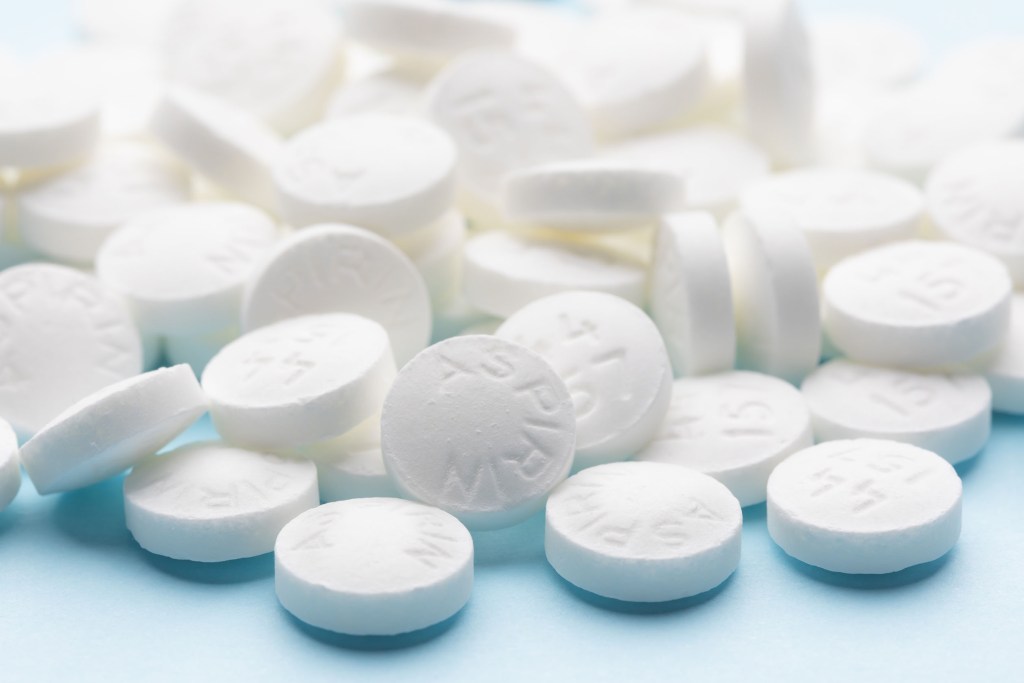Even with the coronavirus pandemic still ravaging parts of the country, heart disease remains the leading cause of death in the United States. For many years, a daily dose of aspirin was considered one of the cheapest and most effective ways to prevent heart attack and stroke. But based on new research, this widespread treatment is being reevaluated.
On Tuesday, October 12, 2021, the US Preventative Services Task Force announced that they were considering changing their guidance on daily aspirin therapy for preventing heart disease and stroke. For many adults, the side effects of everyday aspirin use may outweigh the benefits. Keep reading to learn more about the new recommendations and the research that inspired the change.

New guidelines from the US Preventative Services Task Force
According to the panel’s proposed guidelines, doctors should no longer prescribe daily low-dose aspirin to people with heart disease as a means to preventing a first heart attack or stroke. The new recommendation applies to people under 60 years old who are at high risk for heart disease. It does not apply to anyone who has already had a heart attack or those who are already on the aspirin treatment plan. The panel strongly opposes people 60 and older from starting a new aspirin regimen, too. Experts now recommend patients discuss with their doctors whether the medication is right for them. The task force also plans to reconsider its 2016 suggestion to take low-dose aspirin to prevent colorectal cancer.
The proposed changes to the current guidelines are based on increasing evidence that the risks of daily aspirin use are more dangerous than any potential benefits. The side effects are especially threatening for adults 60 and older, who have an even greater risk of severe bleeding. These recommendations are not yet finalized. However, the draft guidance is typically approved after accepting public comments (from now until November 10).

The risks of taking aspirin daily
Some of the side effects of daily aspirin therapy include:
• Internal bleeding
• Stomach ulcers
• Allergic reaction
• Hemorrhagic stroke (caused by a burst blood vessel)
Aspirin is a type of blood thinner known as an antiplatelet. It prevents blood clots from forming and blocking arteries. But regular ingestion of aspirin may increase the risk of bleeding, especially in the brain and digestive tract. These threats only become more serious as people age. Research also shows that these risks arise very quickly after starting a daily aspirin treatment.
If you are already taking aspirin for heart disease, do not stop treatment until you consult your physician, especially if you have already had a stroke or heart attack. Suddenly stopping treatment can have a rebound effect, triggering a blood clot and a potential heart attack.

New recommendations come after years of research and updated advice
In 1988, researchers conducted the first large national study that found aspirin to be effective at preventing heart attacks. However, the clinical trial only included male physicians and was stopped early due to the remarkable benefits. Medical science has come a long way since then. A 2019 review from the University of Georgia compared newer evidence to older findings and concluded the benefits of aspiring no longer outweigh the harm. People, now, have more resources to keep their cholesterol at a healthy level and control other risk factors like high blood pressure. There’s less of an opportunity for aspirin to make a noticeable difference, but there is still the risk of the negative side effects.
The task force’s recommended changes follow the footsteps of several other prominent medical organizations and federal agencies. In 2019, the American Heart Association and the American College of Cardiology released joint guidelines saying aspirin should only be selectively prescribed. Following a 2014 review, the Food and Drug Administration recommended that aspirin shouldn’t be used as a primary heart attack prevention method.
If you are currently taking daily aspirin or you’re at a high risk of having a first stroke or heart attack, talk to your doctor before altering your medication.
BlissMark provides information regarding health, wellness, and beauty. The information within this article is not intended to be medical advice. Before starting any diet or exercise routine, consult your physician. If you don’t have a primary care physician, the United States Health & Human Services department has a free online tool that can help you locate a clinic in your area. We are not medical professionals, have not verified or vetted any programs, and in no way intend our content to be anything more than informative and inspiring.



